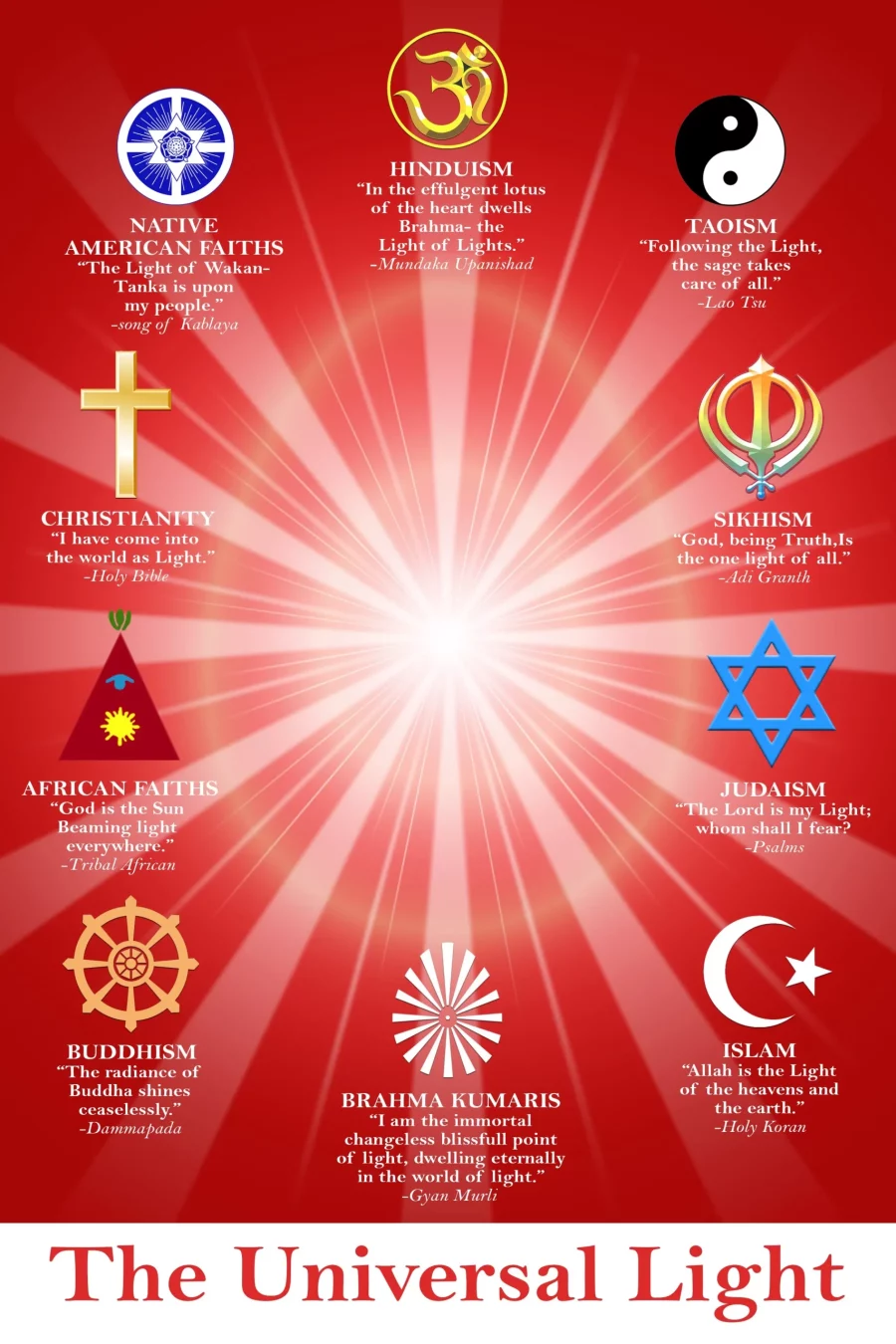
DIVALI, the festival of lights, is celebrated across the world from the White House on 1600 Pennsylvania Avenue to humble abodes on the Himalayan mountains.
Light, the form through which humanity perceives the formless God is at once a metaphor and a mystery.
Across the world’s religions, Light is the most enduring image of the Divine. It dispels darkness wherever it shines, pervades all things without attachment, and reveals without being seen. From the sacred Jyoti of Hinduism, the burning bush of Moses, the luminous enlightenment of the Buddha, the shining “Nur” of Allah, light symbolizes both transcendence and immanence.
Ancient Concepts
The festival of Diwali celebrates the victory of this inner light over ignorance. In the Gayatri Mantra, the devotee prays: “May the divine light of God, Tat Savitur, illumine our intellects.”
The Vedas speak of God as a point of light, Jyoti Bindu. The Rig Veda praises the gods as “dispellers of darkness,” while the Upanishads proclaim; “There the sun does not shine, nor the moon and the stars, … — all this light comes from His light” (Katha Upanishad 2.2.15). Similarly, the Bhagavad Gita (15:12) teaches, “The light that is in the sun, which illumines the whole world… know that light to be Mine.” In these verses, Light is the radiance of Brahman, the supreme Spirit, who illumines all worlds.
In Kabbalistic thought, the divine emanations (Sefirot) are rays of this sacred light descending from the Infinite (Ein Sof), revealing that all creation is infused with God’s brilliance.
Bible
According to the Old Testament, the first manifestation of God’s presence in the world is light, “God said, Let there be light: and there was light” (Genesis 1:3). In the New Testament, John said: “God is light, and in him there is no darkness at all” (1 John 1:5). Jesus declares, “I am the light of the world. Whoever follows me will not walk in darkness but will have the light of life” (John 8:12). Isaiah wrote “The Lord will be your everlasting light, and your God will be your glory” (Isaiah 60:19). The Psalmist affirms, “The Lord is my light and my salvation” (Psalm 27:1). The Transfiguration (Matthew 17:2), where “His face shone like the sun,” reveals divine glory hidden within humanity. Early Christian mystics described this as the Uncreated Light, the radiance of God’s own being.
Qur’an
The Qur’an contains one of the most exquisite expressions of divine radiance: The celebrated Ayat an-Nur, or “Verse of Light,” declares: “Allah is the Light of the heavens and the earth. The parable of His Light is as if there were a niche, within it a lamp — the lamp enclosed in glass — the glass shining like a radiant star” (Qur’an 24:35). Other verses affirm that “Allah guides to His Light whom He wills” (24:35) and that “light upon light, Allah guides to His light whom He pleases.” In Islamic mysticism, Sufism, this Light is understood as Nur al-Anwar — the Light of all Lights — through which all existence is sustained.
Buddhism
The Buddha is portrayed as radiant with enlightenment. While Buddhism does not describe a personal Creator, light remains its most universal symbol. The awakening mind is the inner lamp guiding beings across suffering.
In Mahayana teachings, Amitabha, the Buddha of Infinite Light, embodies compassion and wisdom illuminating all worlds. Every being, it is said, possesses this inherent brightness — the Buddha-nature — obscured by delusion but never extinguished. Enlightenment is simply the unveiling of that original radiance.
Eternal Light
The Brahma Kumaris teach that God is an eternal point of Light, conscious spiritual energy. He has no physical form.
Conclusion
Whether called Shiva, Yahweh, Christ, Allah, Brahman, or Buddha-nature, the Light is of the one, pure and self-effulgent.
In the end, the world’s scriptures, though diverse in language and form, converge on a single truth: God is Light.
Whether expressed through the radiant presence of the Divine in the Vedas, the “Uncreated Light” of Christian mysticism, the “Light of the heavens and the earth” in the Qur’an, or the Buddha’s enlightenment, light remains as a clear and acknowledged form of God. Unlike human beings, each of whom has a name and form and whose existence can be traced to a time and place, there is no tangible evidence of God. God is spiritual and never takes a body of his own, still the idea that He is light shines as a universal truth across the world’s great faiths.
![]()













